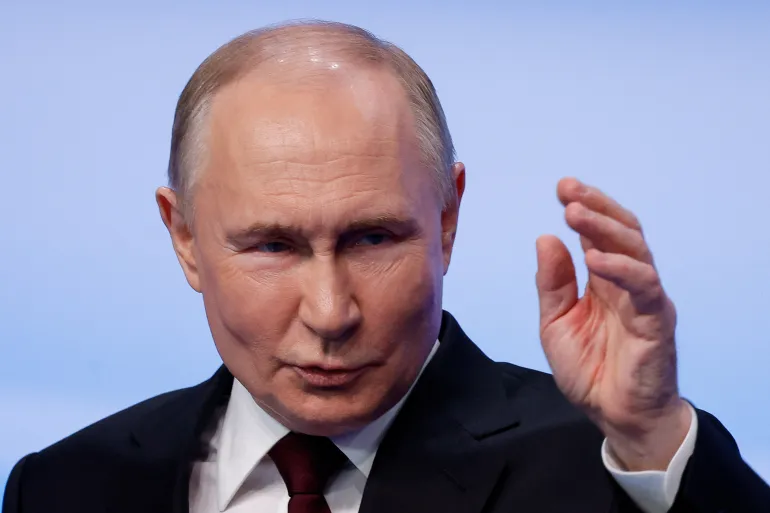Vladimir Vladimirovich Putin is a Russian politician who has been a dominant figure in Russian politics for several decades. Born on October 7, 1952, in Leningrad (now Saint Petersburg), Putin rose through the ranks of the Soviet-era KGB intelligence agency to become one of the most influential leaders in modern Russia. Here’s a brief biography of Vladimir Putin:
- Early Life and Education: Putin grew up in a modest working-class family in Leningrad. He studied law at Leningrad State University, graduating in 1975. During his university years, he joined the Communist Party of the Soviet Union.
- KGB Career: After graduating, Putin joined the KGB, the Soviet Union’s security agency, and served as a foreign intelligence officer for 16 years. He worked in East Germany for a significant portion of his career, where he developed skills in espionage and intelligence operations.
- Entry into Politics: With the collapse of the Soviet Union in 1991, Putin resigned from the KGB and entered politics. He initially worked in the St. Petersburg city administration under Mayor Anatoly Sobchak.
- Rise to Power: In 1999, Russian President Boris Yeltsin appointed Putin as Prime Minister. Later that year, Yeltsin unexpectedly resigned, and Putin became the Acting President. He won the presidential election in 2000 and was re-elected in 2004.
- Presidency: During his presidency, Putin pursued policies aimed at stabilizing Russia’s economy, consolidating power, and re-establishing Russia’s influence on the world stage. He implemented various reforms, including tax and judicial reforms, as well as significant crackdowns on political opposition and media freedom.
- Second Tenure and Beyond: Due to term limits, Putin could not run for a third consecutive term in 2008. He instead became Prime Minister under President Dmitry Medvedev. In 2012, Putin was elected President again and has remained in office since. In 2018, he won another term in an election that some critics argued lacked genuine competition.
- International Relations: Putin’s tenure has been marked by assertive foreign policies, including the annexation of Crimea from Ukraine in 2014 and military intervention in Syria to support the Assad regime. His leadership has often been characterized by tensions with Western nations, particularly the United States and European Union.
- Domestic Policies: Putin’s rule has been associated with a strong centralization of power, a crackdown on political dissent and opposition, and the promotion of traditional Russian values. His government has faced criticism for human rights abuses, corruption, and the lack of political pluralism.
Vladimir Putin’s leadership style and policies have elicited varied reactions both domestically and internationally, with supporters praising him for restoring stability and national pride to Russia and critics condemning his authoritarian tendencies and disregard for democratic norms.
